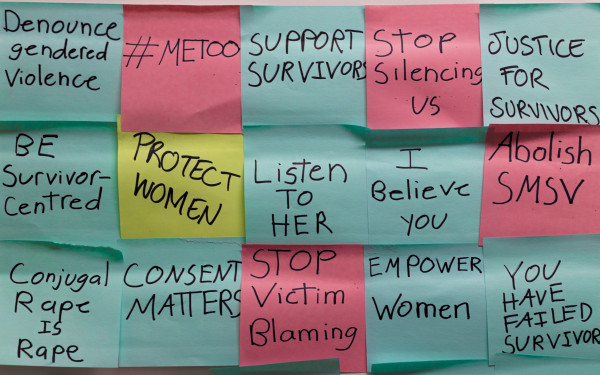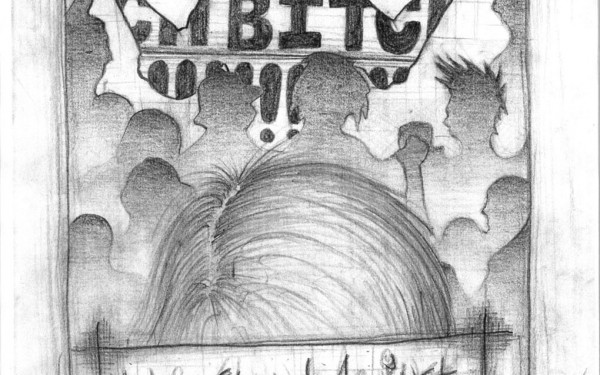Pain on the Brain
What is the link between past abuse and female vaginal pain during sex?
—Anonymous
Vaginal pain during sex can be linked to past abuse, but isn’t always. In order to understand the connection it’s first necessary to have a basic understanding of sexual response.
When aroused, the vagina lengthens and widens to make space to accommodate penetration. The vaginal walls, which are touching when not aroused, separate from each other and become lubricated. This lubrication makes penetration more comfortable and enjoyable.
While that’s somewhat of a simplification, it’s important to know because the most common cause of vaginal pain during sex is a result of not being aroused enough. Not being fully aroused can lead to pain during penetration since there might not be enough lubrication or space in the vaginal canal. Both can lead to more friction, which can cause irritation, pain and even bleeding if forced.
Sometimes this happens just because people rush through foreplay and don’t give themselves enough time for arousal, but psychological factors can also play a part. For example, someone with past abuse or negative sexual experiences could feel triggered by certain circumstances that make it more difficult to have a typical sexual response.
Anxiety can also negatively affect things, making it harder or even impossible to become aroused. To complicate things further, the anxiety can work on an unconscious level, which can make it difficult to identify and address since we’re more likely to attribute a physical response to a strictly physical problem.
Pain during penetration can also be caused by voluntary or involuntary contractions of the pelvic floor muscles, which can be strong enough to prevent penetration or make it really painful.
We more often hear about these muscles in a positive way when we talk about pelvic floor exercises (also known as Kegels) to strengthen them. In these exercises the person is controlling the contractions, but in some situations these contractions are involuntary and are part of a condition called vaginismus.
For someone who has experienced past sexual abuse, these muscles could contract to resist penetration or be tense, causing sex to hurt. This situation isn’t specific to past abuse, but is often psychological and linked to negative past experiences or attitudes about sex.
While vaginal pain during sex can have many different sources, if it’s happening to someone who has a history with abuse it might be worth exploring further. Difficulty starting or returning to sexual activities after abuse is common, and it’s not something that time always heals, so talking to someone can help.
Check out the resources below if you’re looking for support.
—Melissa Fuller @mel_full
Sexual assault support and referrals: 24/7 toll-free 1-888-933-9007 or 514-933-9007 in Montreal.
http://www.sexualassaults.gov.qc.ca/en/
The Centre for Gender Advocacy: 514-848-2424 ext. 7880
Concordia Counselling and Development: 514-848-2424 ext. 3545 (SGW) or ext. 3555 (LOY).
Submit your question anonymously at sex-pancakes.com and check out “Sex & Pancakes” on Facebook. Got a quick health question? Just need a resource? Text SextEd at 514-700-0445 for a confidential answer within 24 hours!
Is there anything you wanted to know about sex, but were too afraid to ask? Sex educator Mel Fuller has the answers on the Sex & Pancakes radio segment, every Thursday at 11 a.m. on CJLO 1690 AM.






_600_375_90_s_c1.jpg)
